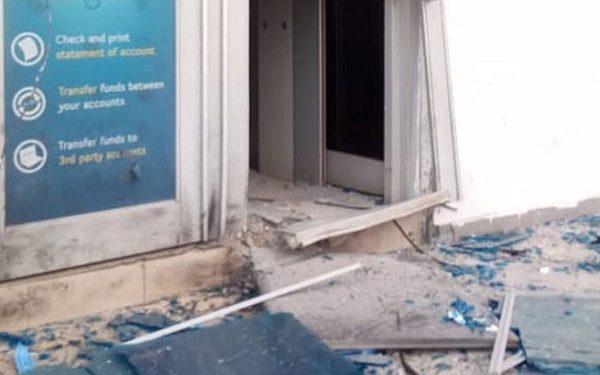
Dare-devil gunmen penultimate Thursday ruptured the peace of Isanlu, an otherwise tranquil town in Yagba East Local Government Area of Kogi State.
They robbed a first generation bank and attacked the town’s police station. By the time the dust settled on the macabre show, eight police personnel – five men and three women – and some civilians had been felled.
This is one bank robbery too many. And the killing of eight police personnel in one fell swoop is, to say the least, despicable. According to reports, the robbers, clutching AK 47 rifles, divided themselves into three groups on reaching the town.
One group invaded the bank, which they despoiled with a dynamite. Another group went to the police station and attacked it, ostensibly to prevent the police from spoiling their evil mission.
The third group held sway menacingly on the town’s main link road, firing indiscriminately to scare away passersby.
Two much blood had been spilled through mindless bank robberies. In virtually all of the deleterious adventures, police personnel guarding those banks were always the target of the criminals for obvious reasons, and many of them had unfortunately been wasted this way.
Kogi State, probably rendered vulnerable by its gateway status, having bordered 10 states, has had more than its fair share of bank robberies and other violent attacks.
In 2014, for example, the Boko Haram insurgents, who maintained a cell in Okene town, had launched an orgy of bank robberies in several towns in the state, during which large sums of money were carted away.
These robberies, according to the confession of a Boko Haram commander, Umar Abdulmalik, were carried out to source funds to procure what he called “advanced explosives”, with which Abuja and other parts of the North were attacked then.
We, therefore, hope that the latest attack would not be the beginning of the resurgence of such incidents in the state.
Good enough, Kogi State Governor, Yahaya Bello, in his reaction to the Isanlu robbery, has assured that his government would not allow bank robbers, who his administration had stopped, in partnership with security agencies, to stage a come-back.
“Our open arms,” he was quoted in a statement, “are no invitation to criminals. Our first responsibility as a government is to ensure security of lives and property in the state.
Bank robbery was a recurring decimal in Kogi State before the current administration.” He added: “Together with all security agencies in the state, we ended the regime of this form of crime since 2017.
We will not allow this to reverse the gains we have recorded in protecting the lives and property of the people.”
The governor should walk his talk.
Our policemen guarding banks and other places have to be more alert to ward off such attacks in the future.
Those who man police stations too must ensure that their stations are not vulnerable for bandits to wreak such havoc without any of the criminals being brought down.
Reports said the robbers who attacked the Isanlu Police Station met some of the police personnel sitting leisurely under the tree in front of the station.
Although it was a surprise attack, the policemen at the station would still have been able to fight back gallantly if they had been more alert when the robbers swooped on them.
Banks too must step up their game and embrace technology more in designing and redesigning their security architecture from time to time. Using revolving doors, for instance, will make it difficult for criminals to break in.
Bank managements should also ensure that there is no discrimination between banks in the rural areas and those in the urban centres. They should all be equally fortified as the former are now targets of criminals.
The police should not spare any effort to nail the criminals. However, since security is a collective responsibility, it will not be a bad idea for banks and other business concerns to partner with the Kogi State government in setting up a security trust fund to assist in providing the required funds for the police to make them more effective.
END

Be the first to comment